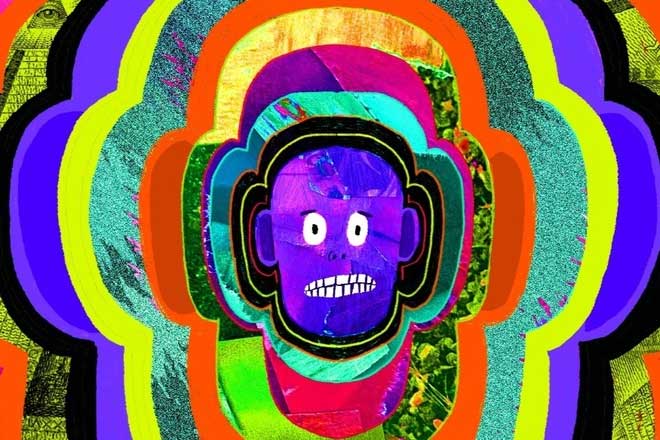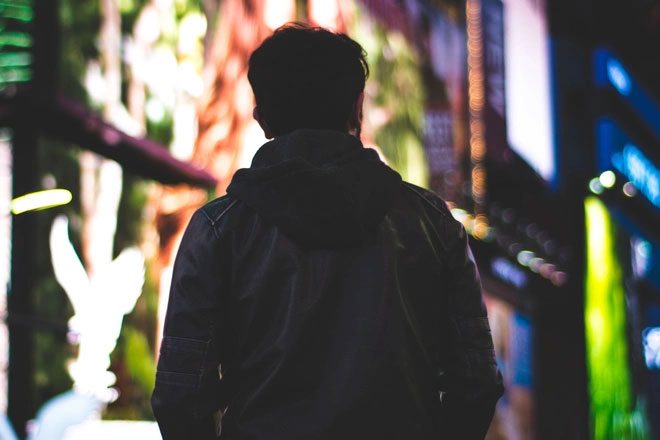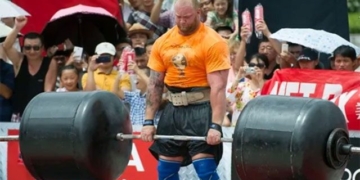Author Brad Stulberg argues that loneliness and social disconnection make individuals more vulnerable to harmful ideas.
A few weeks ago, while shopping at a garden store in Asheville, North Carolina, Brad Stulberg received some advice on preparing for the apocalypse.
“You need to harvest seeds and grow food,” the woman at the checkout told Brad Stulberg—who studies and writes about mental health and is the author of the book The Practice of Groundedness—upon hearing that grocery stores would close due to a combination of Covid-19, inflation, and social unrest. She had been growing her own food to survive in America.

Loneliness can create feelings of anxiety and fear. (Illustrative image: TIME).
In an article for TIME, Brad Stulberg states that there is much to fear in the modern world, but social breakdown is entirely avoidable.
Excessive fear of doom is a psychological “bunker mentality” that mental health professionals often refer to as shared psychosis. The number of people experiencing this syndrome is on the rise.
Instead of taking time to enjoy the present, those afflicted by this condition spend all their time preparing for the apocalypse. Many factors contribute to this trap, but much of the apocalyptic delusion stems from loneliness, a problem exacerbated by Covid-19.
Research by John Cacioppo, a social neuroscientist at the University of Chicago, reveals that when people feel lonely, they also feel insecure.
Although they are not in any real physical danger, prolonged solitude causes the mind to start identifying threats and activating warning signals. This increases stress hormones, raises blood pressure, impairs sleep quality, and heightens the risk of early death.
Dr. Cacioppo found that loneliness tends to self-perpetuate when someone has been isolated for an extended period, making them more likely to feel lonely, anxious, insecure, and fearful.
This can worsen during economic hardship, when individuals have little or no time to connect with their community, leading to a loss of social ties.
In fact, a 2021 study published in the British Journal of Psychology found that neoliberalism fosters feelings of social disconnection, competition, and loneliness.
Loneliness today is diverse and pervasive, described by philosopher Hannah Arendt as “rootlessness.” This term captures the experience of being disconnected not only from others but also from oneself, losing focus, and feeling that life is becoming chaotic, leading to an inability to think independently or feel a sense of existence.
You are not only isolated from others but also unable to deeply perceive yourself. In her 1951 book, Arendt suggested that this kind of rootlessness leads to tribalism.
A 2020 study that further supports Arendt’s assertion, published in the journal Group Processing and Intergroup Relations, showed that social exclusion is a leading factor behind radicalization.
Additionally, research from 2021 by scholars at the RAND Corporation found that loneliness is one of the primary reasons people adopt extremist views and join extremist groups.
Social weakness is linked to an increased likelihood of voting for populist parties, particularly on the right, according to a study published in Political Psychology.

Radical tendencies stem from the fear of loneliness and isolation. (Illustrative image: Kevin Lee).
The attention economy, especially social media, causes distraction and breeds outrage and division while replacing genuine connection with superficiality.
Today’s political forums create an environment of outrage and hostility through algorithms; studies show that divisive posts on social media perform better than neutral ones.
Millions of Americans spend hours consuming content that diminishes their ability to concentrate and think deeply, stimulating fear and division, which masquerades as connection but is, in fact, disconnection—a time of extreme societal polarization marked by rising authoritarian tendencies.
In rural areas, increasing isolation tends to heighten paranoia and fear. In her essay collection Hope In The Dark, writer Rebecca Solnit states: “Those isolated in suburbs, shielded from crime, far from the targets of war or terrorism, are more vulnerable to this fear, which is a fear for safety because the true source of fear is isolation and loneliness.”
From a political perspective, loneliness is not just a public health issue but also a social one.
As life becomes increasingly automated and optimized—what Ross Douthat calls the “Age of Algorithms”—people feel more isolated and lonely, leading to fear and vulnerability to extremist ideas and movements.
The attention economy is disconnecting us from ourselves and others, as much of our time and mental energy at the end of the day is spent on social media. Brad refers to this as the “Internet Brain,” which lacks the capacity to focus on anything deeply and is prone to burnout.
He advises people to prioritize time to connect with neighbors, community, and themselves, building a solid sense of belonging to avoid becoming one of the “isolated and atomized individuals” waiting for the end of times in a bunker or seeking validation online, which only sows the seeds of loneliness and despair—something detrimental to everyone.


















































